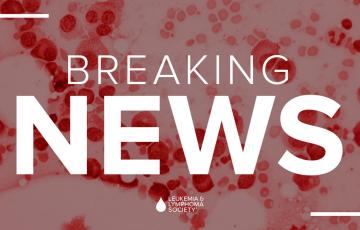Search Results
Surviving ALL: An Intimate Look at How Cancer Affected the Careers, Relationships & Fertility of Four Young Adults
A cancer diagnosis is a devastating blow for people of all ages, but presents special challenges for young adults. This period of life is usually a time of transition as they are embarking on journeys such as school, relationships and careers. A cancer diagnosis can bring their lives to a screeching halt in the midst of these new adventures.
Dissecting the heterogeneity of leukemic and pre-leukemic clonal expansion to identify genes associated with leukemia relapse and genesis
My research investigates the heterogeneity of leukemic and pre-leukemic clonal expansion to identify genes associated with leukemia relapse and genesis. Contrary to conventional studies analyzing cell mixtures, my research uniquely probes the specific cells underlying leukemia development. We expect to identify the key cellular and molecular events that drive leukemia onset and relapse. These findings will help improve diagnosis and can serve as new therapeutic targets for treating leukemia.Azacitidine
Vidaza® is FDA approved to treat
- Adult patients with the following FAB myelodysplastic syndrome (MDS) subtypes: Refractory anemia (RA) or refractory anemia with ringed sideroblasts (RARS) (if accompanied by neutropenia or thrombocytopenia or requiring transfusions), refractory anemia with excess blasts (RAEB), refractory anemia with excess blasts in transformation (RAEB-T), and chronic myelomonocytic leukemia (CMMoL). (1.1)
- Pediatric patients aged 1 month and older with newly diagnosed Juvenile Myelomonocytic Leukemia (JMML).
Leveraging Susceptible Populations and Unique Resources in a Pathway to Prevention of Childhood Acute Lymphoblastic Leukemia
The focus of my research is to understand the causes and early-life origins of acute lymphoblastic leukemia (ALL). We use a two-pronged approach: 1) conducting epidemiological studies of ALL in susceptible populations to understand genetic predisposition, and 2) investigating the in utero origins of ALL across subtypes. Our goals are to identify children at the highest risk of developing ALL through genetic screening and to lay the groundwork for precision prevention strategies.Deciphering the interplay between apoptotic and signaling pathways to target T-lineage acute lymphoblastic leukemia
T-ALL is an aggressive leukemia with limited treatment options. T-ALL cells resist to dying by suppressing their suicide pathways. BH3 mimetics reactivate the suicide mechanisms to induce cell death. We showed that these drugs are effective in T-ALL, but acquired resistance is due to the activation of growth-promoting signaling pathways. The proposed experiments will decipher the relationship between growth and death pathways, identifying unique combination therapies to improve disease outcomes.T cells with native and chimeric receptors against multiple tumor targets for acute myeloid leukemia
Adoptive T cell therapies for acute myeloid leukemia face numerous hurdles such as limited target antigens, immunosuppressive tumor environment as well as the loss of efficacy due to downregulation of the targeted antigen. The goal of our project is to address some of these challenges with a single T cell product targeting multiple tumor associated antigens that have limited expression on healthy tissues via a novel combination of native T cell receptor and gene engineered CAR targeting.Improving CAR T-cell Therapy Efficacy in Acute Lymphoblastic Leukemia by Optimizing Design and Placement
Pediatric acute lymphoblastic leukemia (ALL) that is resistant to standard therapy is a challenge that has been partially overcome by T-cell therapy, yet relapse still occurs in up to 50%. We are conducting two clinical trials that test a next-generation T-cell therapy and the first incorporation of T-cell therapy into initial therapy. These trials will inform future development and the optimal place for this therapy with the goal of improving cure rates for children with very high risk ALL.
We Dare to Dream so Their Dreams Come True
Did you know that blood cancer is the most common cancer diagnosis for children, accounting for 40% of pediatric cancer cases? In fact, nearly 55,000 children and adolescents in the United States currently have blood cancer or are in remission from blood cancer.
Ponatinib
Ponatinib is FDA approved for the treatment of adult patients with:
Nilotinib
Tasigna® is FDA approved for the treatment of

Highlights from ASH 2021
The American Society of Hematology (ASH) annual meeting is the premier scientific forum on blood cancers. More than 5,000 potentially game-changing research abstracts were presented at this year’s meeting. Every year, I come away with a strengthened sense of hope about new treatments on the horizon and renewed pride in The Leukemia & Lymphoma Society’s (LLS) role in supporting so many of them.

Young Advocate, Big Goals: Charlotte’s Story
Imagine going to the doctor for a cold only to learn you actually have leukemia. That’s how Charlotte's experience with blood cancer began in 2018.
“The doctor diagnosed it as strep throat,” Charlotte remembers. When the antibiotics didn’t work, she “went to another doctor who diagnosed it as something else.”

Ushering In a New Era of Pediatric Blood Cancer Treatment and Care
We caught up with Gwen Nichols, MD, Chief Medical Officer at The Leukemia & Lymphoma Society (LLS), to share the progress we’re making to bring cures and better care to children with blood cancer through The LLS Children’s Initiative.
Tell us about The LLS Children’s Initiative and why it’s so important to you and LLS.
Pluripotent Stem Cell-derived CAR-T and CAR-NK Cells for Immunotherapy of Leukemia and Lymphoma
Cytotoxic cells of the immune system, including T and NK cells, can be targeted to seek out and destroy leukemia, lymphoma and myeloma cells by engineering them to express chimeric antigen receptors (CARs) which empower the cell to home to and kill the cancer cells. Typically, such CAR-T and CAR-NK cells are generated from a patient's own blood, but sometimes heavy pre-treatment with chemotherapy leaves inadequate supplies of T and NK cells.
Blood Cancer Research Poised for Another ‘Banner Year’ in 2024
More than 25,000 medical professionals from across the world came together in December to discuss the latest blood cancer developments during the annual meeting of the American Society of Hematology (ASH). This annual event gives us the opportunity to think about what advances are on the horizon as LLS works to strengthen cures, care and quality of life for people with blood cancer and their families.
6-Thioguanine
6-Thioguanine is FDA approved for remission induction and remission consolidation treatment of acute nonlymphocytic leukemias.


